Protestant and Catholic Beliefs Series Conclusion
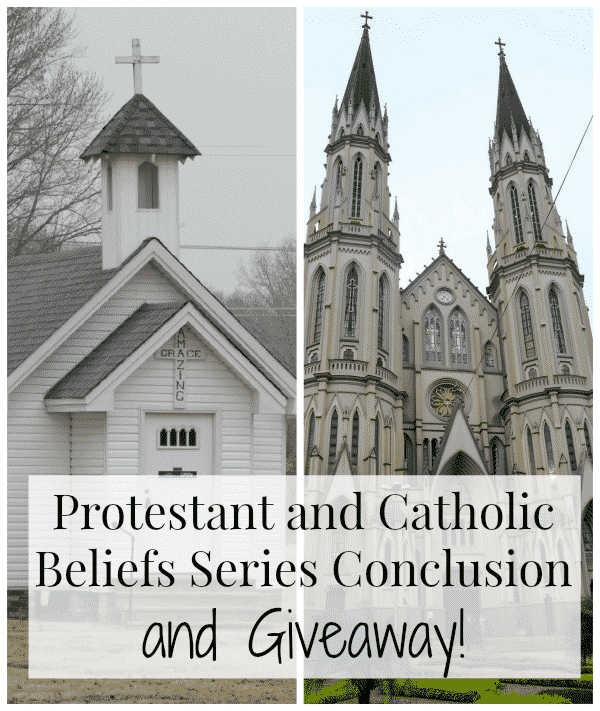
This post is the conclusion post to a series entitled Letting God Lead: My Journey Through Protestant and Catholic Beliefs. If you are new to this site or this series, I HIGHLY encourage you to check out the rest of the series as well. *This post contains affiliate links.
A little over a year ago, I began a journey–a journey to find out the truth behind Protestant and Catholic beliefs–and what a journey it has been!
I’ve read countless books and articles, taken classes and talked with priests, debated apologetics, attended mass, listened to your stories, and shared my own. I was even on the radio! (Click here to listen to the recording.)
We covered a LOT of ground in this series, and I hope it’s true to say that we all learned a lot.
- In the series introduction, I shared my story: How I grew up (and still am!) a very dedicated, Bible-believing Christian, and how I got started on this journey in the first place.
- Next, I did my best to dispel 10 Common Catholic Myths in the hopes that everyone following along would be able to do so with an open and informed mind.
- We discussed the Eucharist, and I presented solid evidence concerning whether or not it is the true Body and Blood.
- We discussed “Sola Fide” and whether faith alone is enough or if we need something more.
- We discussed “Sola Scriptura,” talking about important issues such as tradition and the authority of the church, the Bible and the first century apostles.
- We discussed the history of the Catholic church and evidence for/against the Apocrypha.
- I offered some insights on what Catholics really believe about the Pope, priests and confession and why.
- And then I did the same thing with the issues of Mary, Saints and Statues.
- We took a look at Biblical and historical evidence for/against Infant Baptism.
- As well as Biblical and historical evidence for/against Purgatory and Indulgences.
- And then last week, we capped off the series with a lighter topic: Why do Catholics do all the weird stuff they do?
Of course there will always be more to say and more to cover, but hopefully this series has been enough to get you thinking and researching for yourself, instead of simply blindly believing what you’ve been taught from birth. Because when I examined what I’d always been taught, I found out a lot of it was wrong. My teachers were wonderful people, but so many of the principles they taught me simply were not Biblical. I don’t want you to make the same mistake.
Whether you are Protestant or Catholic–honestly, I could care less. Maybe I should? But it really doesn’t matter to me. What matters to me is that you have researched the issues yourself, that you know what and why you believe, and that you can confidently defend your beliefs to others. That you believe on purpose because you really know it to be true–not that you believe by default because someone told you something and you didn’t bother to fact check for yourself.
So now, for the moment you’ve all been waiting for–what did I decide???
[thrive_leads id=’23166′]
Is the Eucharist the Real Body and Blood? Yes, I believe it is.
From the language Jesus used to the Jewish peoples’ reaction to the early Church’s response–all of the research I’ve done so far leads me to believe that it has to be real. (Find the information that lead me to this decision in my post: Is the Eucharist Really Just a Symbol?)
Is Faith Alone Enough? No, I believe God expects something more.
To be very clear: Both Protestants and Catholics agree that you cannot earn your way into Heaven through works. We are saved because of God’s grace, which allows us to have faith. But in light of the verses I shared in my Is Faith Alone post as well as the following two arguments, I have to agree that yes, you do need faith, but that you can’t just stop there. Once you are already “saved” (or “justified”), your life needs to reflect that. I think, deep down, many Protestants would agree. You can’t just say a prayer and then go on your merry way.
Argument #1: Protestants say that nothing we DO can get us to Heaven. Yet, the very act of choosing to believe is a verb–something we DO. God doesn’t force us to be Christians against our free will. We choose it. So we can’t reject ALL works, because believing is a work itself.
Argument #2: If simply believing were enough–well, even satan and his demons know that Jesus is God. They know He is the only way to Heaven. If all you had to do was believe–wouldn’t that make satan a Christian? Yet, I’m pretty sure we would all agree that’s preposterous. Why? Because he certainly doesn’t act like a Christian! He doesn’t repent, or submit or act like a Christian–all things Christians DO. So simply believing in Jesus can’t be enough.
So in light of alllll of the verses I listed in my Is Faith Alone Enough? post (check them out!) combined with the two arguments above, I can only conclude that we HAVE to play a role somehow. Faith alone is not enough. I have NO IDEA where that line is–concerning what we have to do, how much we have to do, etc, but I have to believe that something more is required.
Who has the Ultimate Authority–the Bible or the Church? The Church… I think? But which one??
Based on the findings I shared in Who Has the Ultimate Authority? A Biblical Look at Sola Scriptura, I strongly believe that the Bible was never meant to be a comprehensive how-to guide that covers every topic. It IS infallible on the issues it covers, but it doesn’t cover everything, and it leaves a lot of things open to (mis)interpretation. So, while I am definitely very much a Bible-believing Christian, I have to agree that we need more than just the Bible; we need the rest of the teachings and history–which we *should* find in the church.
However, while I totally understand and support the need for and appropriateness of having the church be our authority (under Christ of course!), I did not see any evidence that points to the *Catholic* church having to be that authority, instead of the church in general.
Catholics believe that the Catholic Church we have today is the same church the Christian churches had in the first century, but is it? How do we know they didn’t get off 5 degrees somewhere and end up way off course today? How do we know they clung to the right things? The pharisees thought they were experts at keeping the law, but they got in big trouble when Jesus came to town. I mean this in a polite and sincere way, but how do we know the Catholic Church hasn’t done the same thing? This has been my main nagging doubt this entire time, and it has yet to be resolved.
(And yes, I know that Jesus would send the Holy Spirit to guide the Church and keep her from error, but what proof is there that that verse is talking about the *Catholic* church–not the church as a whole or a different denomination?)
So…. I like the idea, but I haven’t been able to fully accept it yet. (Read more in my post: Who Has the Ultimate Authority? A Biblical Look at Sola Scriptura)
Is the Apocrypha Scripture? Don’t ask me; I have no idea.
Did you see the chart at the end of my History of Christianity post?? All of the information is hopelessly contradictory!! And while I can throw out several of the arguments on one side or the other (the books were found with the Dead Sea Scrolls–we checked!), I still see very logical points on both sides. So quite honestly, I have no idea. I am ever so slightly leaning towards the Catholic perspective since they were in the Bible for hundreds of years before Martin Luther took them out, but I could easily go either way. I simply don’t know at this point.
Concerning Priests, the Pope and Confession: Makes Sense to Me
I like the idea of having a God-led priest instead of every person misunderstanding the Bible for him or herself. Obviously with everyone being able to come up with whatever interpretation they want, we aren’t doing a very good job. (30,000 Protestant denominations!) Obviously not to say we shouldn’t think for ourselves (this whole series is so that you will!), but having one trusted standard sure seems nice right about now! (But is Catholicism it? I don’t know!)
I don’t have a problem with the pope being infallible (I don’t know if he IS; I do believe it is possible). I’ve always liked the idea of confession and thought it was a good practice. I do believe priests could have the power to forgive sins. It does seem a little unnecessary to me, but that’s probably just my upbringing. I don’t have any theological problems with any of it. Logically, it makes a lot of sense.
Concerning Mary, Saints and Statues: I Still Think it’s Weird… But There are Much Worse Things It Could Be…
I do NOT believe Catholics worship Mary, saints or statues. (Well, maybe some do in other countries, but your average American Catholic–no.) I personally think some Catholics pay them more attention than they maybe ought, but then again, you’re going to have people mess things up in any religion.
Mary: In all honesty, I simply don’t “get” all the hubbub about Mary. Yes, she said yes to God, but people say yes to God every day. Even if she is the most important human in history (and I don’t have a problem with that)–she’s still human. Even if she were sinless (and I don’t have a problem with that either)–it was because God preserved her from it, not because she did anything herself to deserve it any more than the rest of us. I understand that Mary is supposed to point us to Jesus, but I can’t help but feeling that, for some people, all the Mary stuff has become a distraction.
Saints: I don’t know if I feel particularly compelled to pray to any Saints, but I don’t necessarily have a problem with the practice **when done according to official Catholic doctrine.** I don’t think it’s really necessary, but I don’t think it’s sinful, either.
Statues: As long as Protestants have nativity scenes, they can’t point fingers at Catholics because it’s the exact same thing. I have zero problem with statues (when used appropriately).
(For more information on this topic, please check out my post: What Do Catholics Really Believe About Mary, Saints and Statues?)
Is Infant Baptism Scriptural? I’d personally rather not wait.
I don’t know that Scripture is incredibly clear either way, and I say this because I can easily make good, Scriptural arguments for either side. Plus, when you look at early Church history, they did it both ways. BUT since it can’t hurt and it can potentially offer many huge benefits, according to Catholics–why wait? We baptize our babies as infants.
(Read more about the subject in my post: Infant Baptism or Believer’s Baptism? Which is Correct?)
Are Purgatory and Indulgences Scriptural? Probably
As I was researching for my post on Purgatory and Indulgences, I was surprised to find so many verses that *could* reference Purgatory. And honestly, the teachings make sense. I don’t know if I believe in them for 100 sure at this point, but I don’t have a problem with either of them. (Read more in my post: What is Purgatory? What are Indulgences?)
So What Did I Decide?
I decided I wasn’t ready to become Catholic at this point. We attended all of the learning type classes and then dropped out before the rites. We still attend Mass every Sunday.
The reason I chose to drop out is because when I looked up what the rites of sending and election are (the “ceremonies” we would go to next), I read that I would be asked “Do you believe all that the Catholic church teaches to be true?” And my sponsor (my husband) would have to vouch for me.
Well, I can’t in good faith go up in front of an entire church and declare that I believe everything the Catholic Church teaches is true. I’m not saying it’s not. I’m saying: I don’t know. I still have questions. I’m still learning. I’m still seeking.
I haven’t read the entire Catechism yet. I haven’t read all of the Apocrypha yet. How can I state I believe they are true if I don’t know what is in them? At this point, I can’t.
I’ve changed my mind on a LOT of really important things–the Eucharist, confession, praying to the saints… I’ve learned a lot and I’ve come a long ways. But God isn’t finished with me yet.
So the series is done for now, but that doesn’t mean our journey has to be over. Go back and read through the posts again, really mulling over the points. Get and read the books above. Talk to your priest or pastor. Talk to me; I’d love to hear from you!! Don’t let your journey stop here.
Here’s a list of topics we’ve covered so far, in case you still need to go back and catch any you missed.
The Day I Realized My Religion Got it Wrong
10 Common Catholic Church Myths that Critics Believe
Is the Eucharist Really Just a Symbol?
Who has the Ultimate Authority? A Biblical Look at Sola Scriptura
A Brief Look at the History of Christianity
What All Christians Should Know About Priests, the Pope and Confession
What Do Catholics Really Believe About Mary, Saints and Statues?
Infant Baptism or Believer’s Baptism? Which is Correct?
What is Purgatory? What are Indulgences?
Why Do Catholics….? Honest Answers to Your Burning Questions
Protestant and Catholic Beliefs Series Conclusion
So that’s an update on me–how are you doing? What questions are you still wrestling with, if any? Let’s discuss!


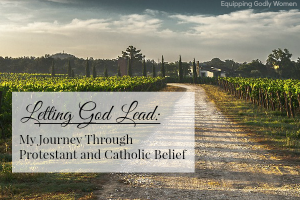
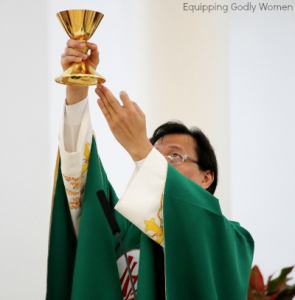
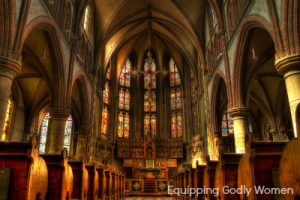
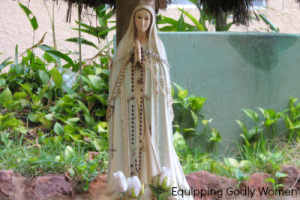
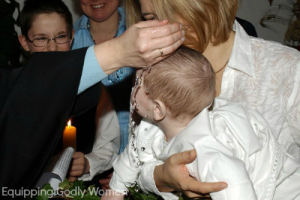
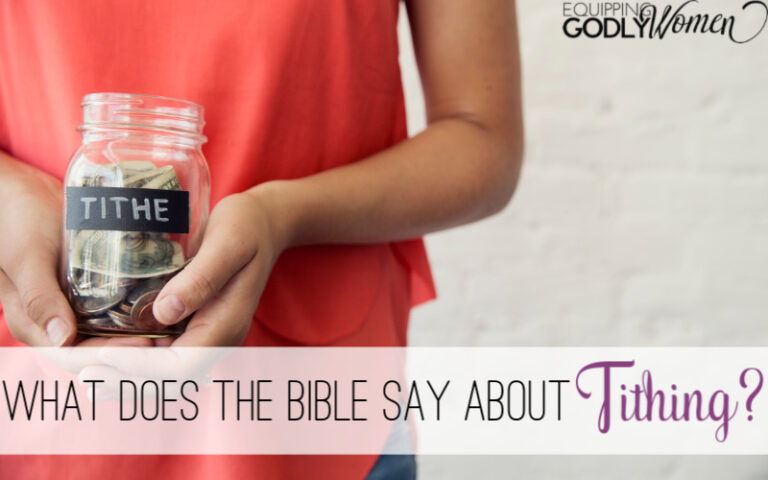
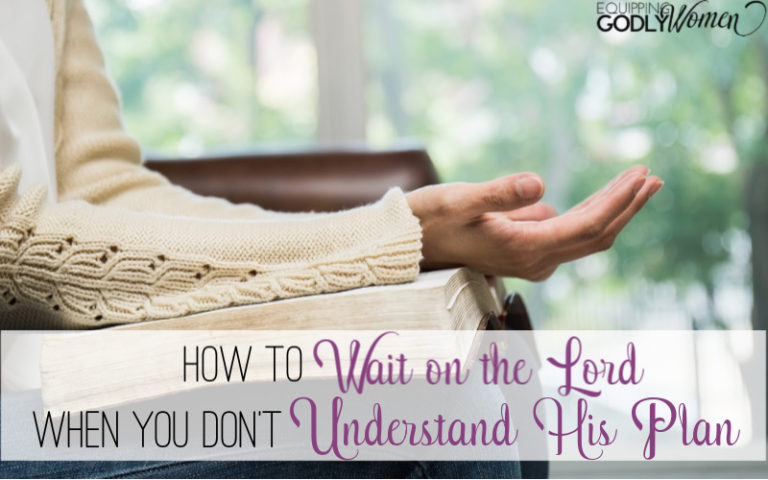
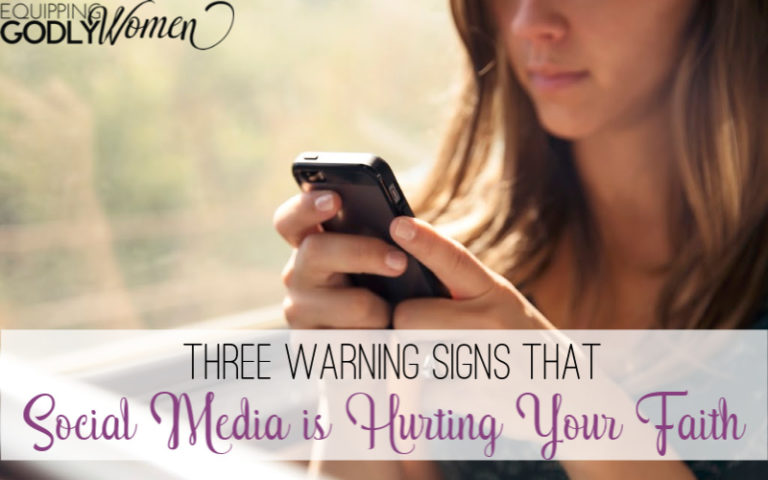
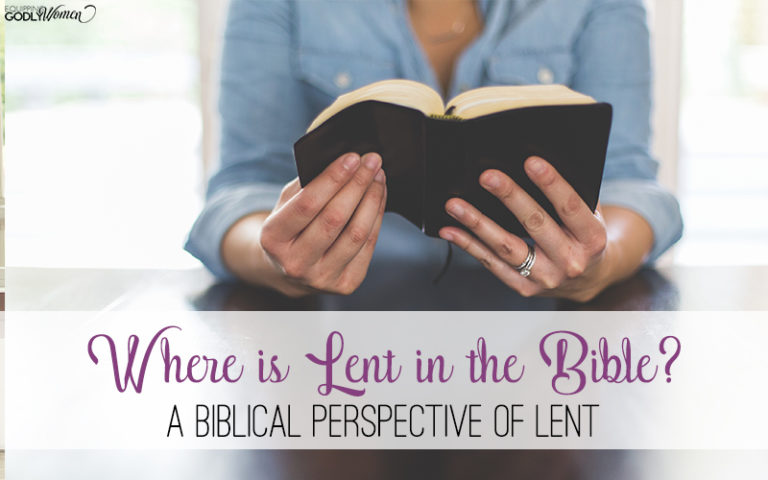


I have not read all of the comments so forgive me if I am bringing up something that has already been addressed. If you have researched the history of the Church fully, then you would know that there was only one Church, ever and it was the one which had Apostolic Succession. Jesus only created one Church so as there was only one until Luther went crazy, it has to be the Catholic Church. That is just common sense. Now, if you want to know if the Church today is the same, please prayerfully read St. Clement and St. Ignatius of Antioch. Read St. Justin Martyr and the Didache. All of these sources will reveal the same Church, the same Mass, the same Hierarchy that we see today in the Catholic Church.
As someone who was confirmed at the age of 52, I can tell you that Jesus is present in the Eucharist and one of the greatest regrets of my life, is that I did not know that, and I lost all those years of unity with the Lord and the grace that comes with that and all the other Sacraments.
Keep going backwards and then go forward. Come home to the only Church with the fullness of Truth. Come and taste the sweetness of the Lord.
Yes, I definitely need to find some time to read the early church fathers. I’ve been meaning to, but just haven’t gotten around to it. Perhaps THAT should be my New Year’s Resolution this year! Hmmm….. food for thought.
Hello Brittany,
I just found your series through a post on Pinterest. I was raised in the Catholic Church, attended various churches as a young adult (both Catholic and Protestant, because my opinion is very similar to yours – who cares? we’re all Christian) and am now in a ‘Calvinist’/ Reformed church. Truthfully, I only read your first article and last, because I didn’t want to be any more confused than I’ve been in the past and I could see you were leaning toward Catholicism (whereas I’ve leaned away). I’m happy with Bible Study Fellowship, and my church and I just wanted to say that I appreciated your style of writing – straight to the point, with little grammatical or spelling errors 🙂 and I especially appreciated your acknowledgment that we are all Christians. No ‘conversion’ within Christianity needed. 🙂 Many blessings on your sincere journey.
Hey, Becky! You should totally go back and read all the posts! 🙂 Spoiler alert – I didn’t actually end of converting, but I did learn a TON along the way. I really don’t think the posts would confuse you – just share some more information you would probably find really helpful in making your decision, whichever way you decide. 🙂 Glad you enjoyed what you’ve read so far though!